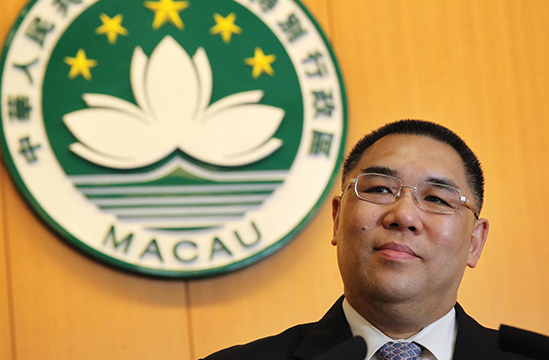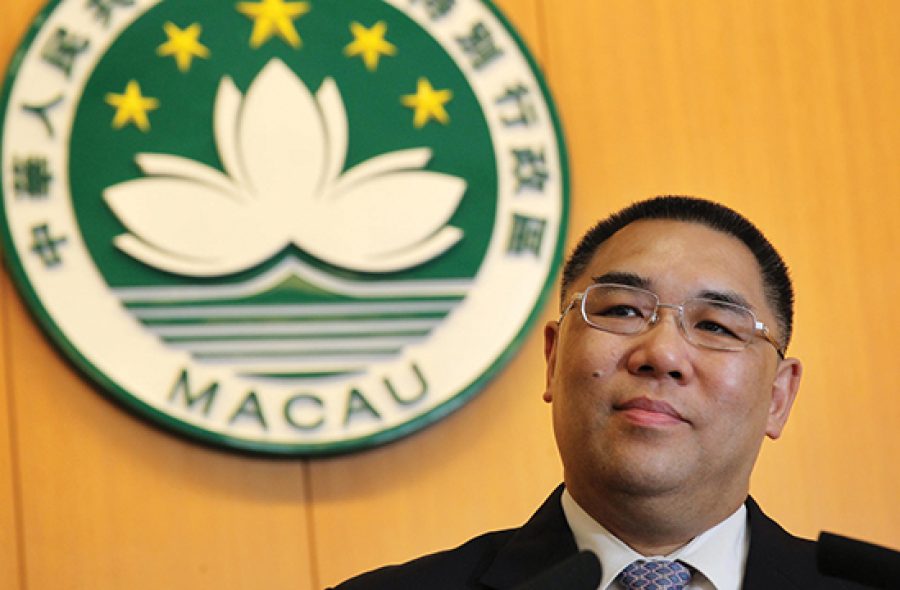Chief Executive Fernando Chui Sai On’s popularity has “rebounded significantly” after last year’s plunge, the Public Opinion Programme (POP) of The University of Hong Kong said in a special announcement this week.
According to the announcement, Chui’s support rating has increased from 49.5 to 56.3 marks.
The latest survey showed that 30 percent supported Chui as chief executive and 54 percent opposed him, giving him a net approval rate of negative 24 percentage points, the announcement said.
His net popularity has also “risen rapidly” from negative 44 to negative 24 percentage points.
For the local government, compared to last year’s survey, its popularity has also “sharply increased,” the announcement said.
The government’s latest net satisfaction rate has surged from negative 19 to positive 7 percentage points.
As for the central government, Macau people’s evaluation of its policy on Macau remains “very positive” with a net value of positive 51 percentage points, “but it has dropped 13 percentage points from last year, to a record low since the survey question was first asked in 2005,” the announcement said.
As for the survey’s trust indicators, Macau people’s net trust in the local government now stands at positive 20 percentage points, while the net trust in the central government stands at positive 44 percentage points, the announcement said.
As for the survey’s confidence indicators, Macau people’s confidence in the future of Macau, the nation as a whole and the “One Country, Two Systems” principle remains positive, with the latest net values at positive 49, positive 69 and positive 51 percentage points respectively.
The announcement pointed out that the confidence indicator figures have not changed much.
In terms of ethnic identity, the respondents’ identity rating of “Macau people,” and “Chinese” have remained similar to the figures a year ago, at 8.2 and 7.8 marks respectively.
As for the appraisal of civil society’s conditions, the degree of “stability” received the highest score from the Macau people, followed by “prosperity”, “freedom” and “democracy”. Among them, according to the announcement, only the increase in the “prosperity” indicator has gone beyond sampling errors, while the rating for “freedom” has dropped slightly from last year, but to a record low since the survey question was first asked in 2001.
The announcement pointed out that the maximum sampling error of all percentage figures is +/-4 percentage points at 95 percent confidence level, while the sampling error of rating figures and net values “need another calculation.”
The response rate of the survey stands at 68 percent, the announcement said, adding that the figures of the Macau annual survey released yesterday continue to come from landline samples only, without any mobile phone samples yet, unlike in Hong Kong.
“Hong Kong and Macau differ a lot and the figures of their public sentiments cannot be directly compared,” the announcement said, adding that, however, “within the survey series conducted by POP in Macau, the figures themselves can be compared.”
The sample size is 504 successful interviews, the announcement said, adding that the data of the survey was collected by means of random telephone interviews conducted by real interviewers, not by any interactive voice system (IVS).






